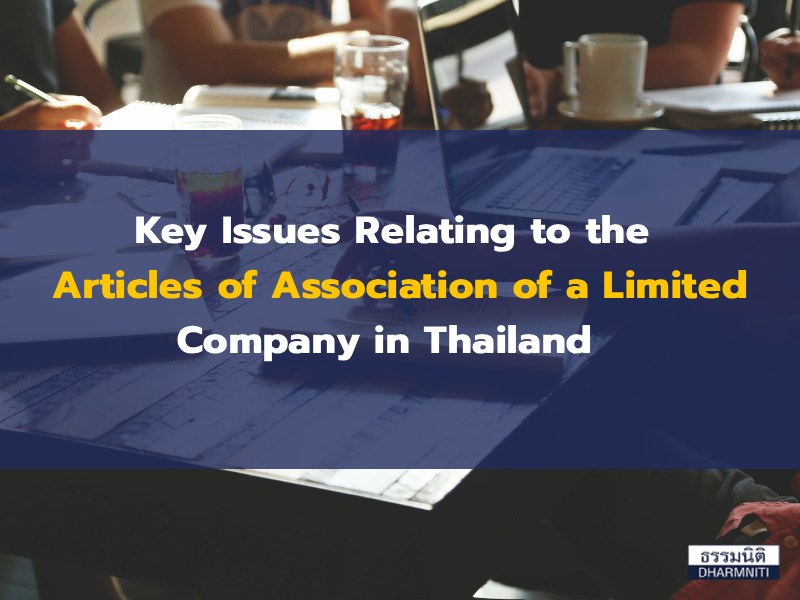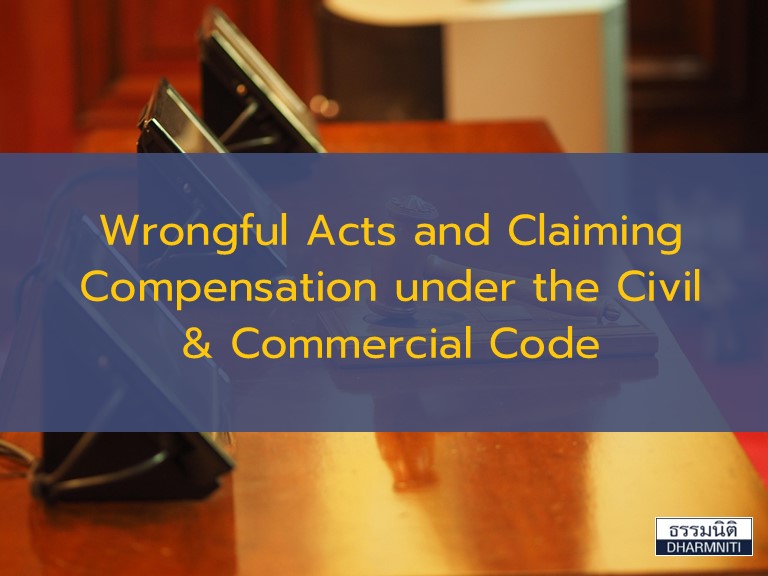Work Rules – Practical Tips & Advice for Employers
Legal Background
According to section 108 of the Labour Protection Act (1998), employers having ten (10) or more employees must have work rules in Thai language, such rules must as a minimum cover the following issues:
-
Working days, regular working hours and rest periods;
-
Rules concerning overtime work and work on holidays;
-
Rules concerning overtime work and work on holidays;
-
Date and place of payment of wages, overtime pay, holiday pay and holiday overtime pay;
-
Leave & rules for taking leave;
-
Discipline and disciplinary actions;
-
Submission of grievances; and
-
Termination of employment, severance pay and special severance pay.
The law imposes several requirements with respect to work rules, one of the most important being that an employer must announce the application of work rules within fifteen (15) days from the date that the employer has a total of ten (10) or more employees. Moreover, employers are required to keep a copy of their work rules at their place of business or in the employer’s office at all times. Furthermore, an employer is required to submit a copy of their work rules, in Thai language to the Director General of the DLPW or his designee for review within seven (7) days from the date that such rules are effective.
It is also worth noting that work rules & regulations that have been submitted to the DLPW are still enforceable even if the number of employee’s later decreases to be less than ten (10) afterwards.
In relation to timing and when such rules become effective, employers should be mindful that the rules are effective from the date the employer announces them to its employees rather than from the date that the DLPW approves them.
Practical Tips re Work Rules
Limit Topics:
In the writer’s experience many employers in Thailand make their official work rules too long and cover too many issues aside from those mentioned under s.108, the writer recommends that employers should take a more simplified approach and instead only have their official work rules cover the 8 issues mentioned above and leave other topics/rules to instead be covered by internal policies. This approach can offer employers several benefits, including:
-
Implementing changes to those internal rules not covered in the official work rules but specified in internal staff policies is much quicker as there is no need to submit an amended version of such internal policies to the DLPW to review and approve such change;
-
Limiting the work rules to only those issues under s.108 of the LPA makes legal compliance easier and also makes getting approval from the Government more straightforward as there are fewer issues to be examined and approved by DLPW.
Drafting the Work Rules in a straightforward and accurate manner:
The writer has reviewed many work rules in Thailand and has observed that many are unnecessarily long and/or unclear on many topics. To combat this, the writer contends that the rules should be to the point and not contain unnecessary text. For instance, if an employer only wishes to apply the minimum requirements concerning maternity leave as provided in Thai law, rather than copy out the relevant provisions of the LPA word for word, one idea would be to provide as follows: “All female employees shall be entitled to maternity leave in compliance with Thai labor law”.
Excessive Power to Employer
Employer’s should also be careful to give themselves excessive power under the work rules because in some cases, the DLPW when conducting its review may reject such powers and demand that the Employer revise their work rules accordingly. Some classic examples of excessive powers which employers should be careful of include an employer having the right to reduce an employee’s salary or to change their place of work without the employee first agreeing to such change in writing.
Discipline – Minor and Serious Misconduct
One of the most common problems that the writer comes across when reviewing work rules is the failure of employers to delineate between (and define) minor and serious misconduct. The writer also wishes to note that employers should be aware of the decisions of the Supreme Court as to what type of conduct constitutes serious misconduct because if an employer defines serious misconduct in contravention of these judgements then it is highly likely that such actions will be interpreted by the Courts as not being serious misconduct. Some examples of serious misconduct which meet the requirements of the judgements of the Supreme Court include an employee intentionally defrauding their employer for personal financial gain or an employee intentionally damaging the machinery/equipment of their employer in order to undermine its operations. Generally speaking ‘serious misconduct’ needs to be employee conduct which causes serious damage to the employer.
Translation of Work Rules for Multinational Workforce
On a practical level, if an employer has a multinational work force, the writer recommends that the employer have the work rules translated into the various languages of the work force so that all staff have the capacity to understand their rights and responsibilities under the rules.
Dharmniti Law Office Co., Ltd.
2/2 Bhakdi Building 2nd Floor, Witthayu Road, Lumphini, Pathumwan, Bangkok,
Tel: (66) 2680 9710,
Email: ryan@dlo.co.th




 Except where otherwise indicated, content on this site is allowed to be used under
Except where otherwise indicated, content on this site is allowed to be used under